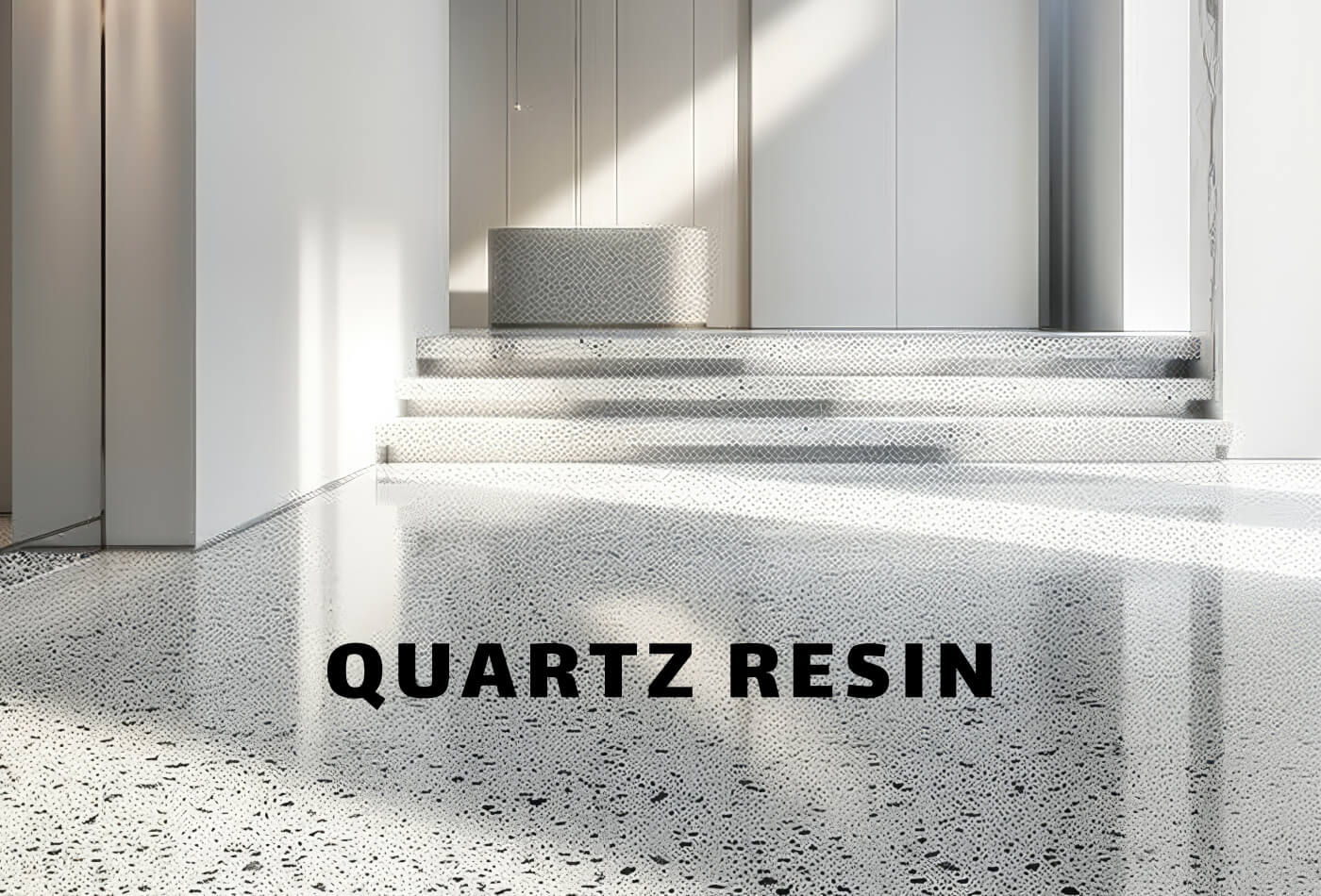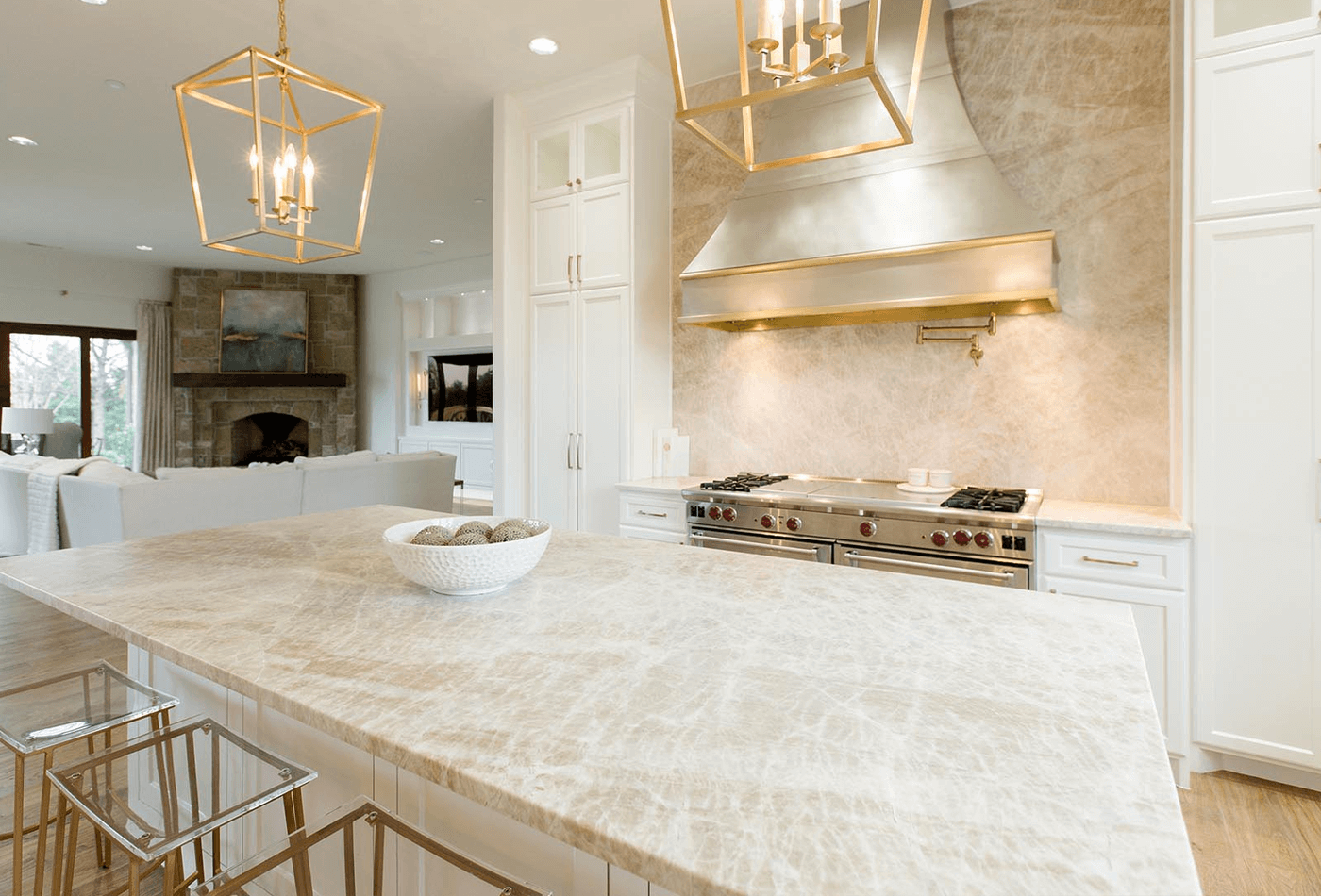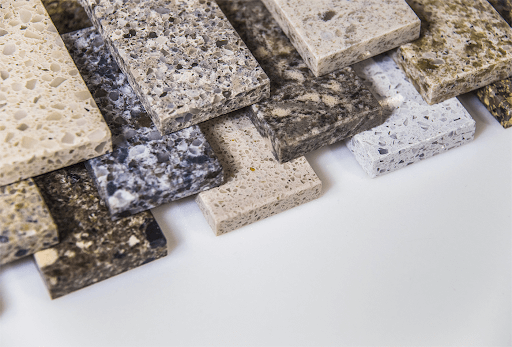Introduction:
We know that choosing the very right flooring type for your home can feel overwhelming, and especially when you are having so many options! Right? If you're a person who is seeking both stylish and low-maintenance, then Quartz resin floor finish is a fantastic choice. Not only that but because of its smooth, obscure design, it blends well with more materials such as Marble and Granite and will bring an old-world feel to any place. Quartz resin tiles are also easy to clean, which makes them appropriate for use in homes that have a lot of traffic. They look stunning alongside stone countertops, bringing out the best in both materials. Don't forget that Work-tops is always here to assist you!
What is Quartz Resin Flooring?
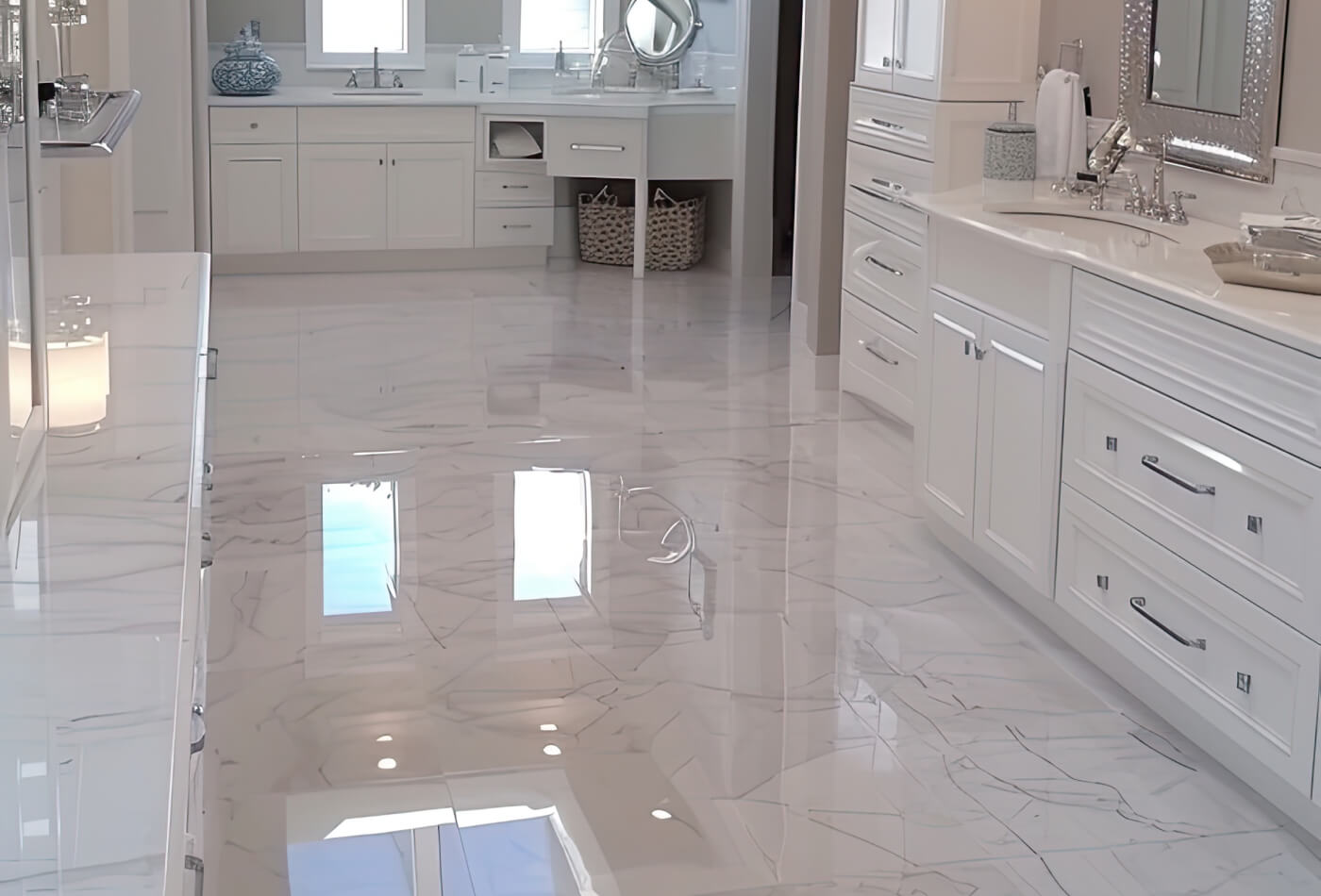 “Quartz resin floor” is a hard-wearing, and smooth flooring system that has been created from a blend of resin and hardener. This combined forms a continuous, glossy surface that’s tough and resistant and adds an elegant look and sleek vibe to any kitchen. It is used widely in homes and offices, especially when used together with stone-based things such as Granite or Marble because it shares a similar brightness. Explore kitchen flooring ideas now! Get quotes from local professionals now.
“Quartz resin floor” is a hard-wearing, and smooth flooring system that has been created from a blend of resin and hardener. This combined forms a continuous, glossy surface that’s tough and resistant and adds an elegant look and sleek vibe to any kitchen. It is used widely in homes and offices, especially when used together with stone-based things such as Granite or Marble because it shares a similar brightness. Explore kitchen flooring ideas now! Get quotes from local professionals now.
Pros and Cons of Quartz Resin Flooring:
Pros
Durability: It is very easy to clean, and scratches, stains, and impacts are perfect for busy kitchens!
Easy Maintenance: A simple mop or wipe keeps it looking brand new, making it low maintenance.
Seamless Look: It is free from grouts, which makes it modern and classy, perfect for your modern kitchen.
Waterproof: You will be able to dry it easily, and the material will not absorb spills and splashes, which is perfect for cooking areas.
Cons
Initial Cost: The high-quality Quartz resin flooring can be a little more expensive to install.
Can Be Slippery: However, the reflection may be slippery when wet, so the introduction of a matte touch might be strategic.
Colour Fading: Over time, Quartz resin flooring may fade if exposed to direct sunlight.
Difficult to Repair: While durable, if it does get damaged, repair work can be complicated.
What is the Difference Between Epoxy and Resin Flooring?
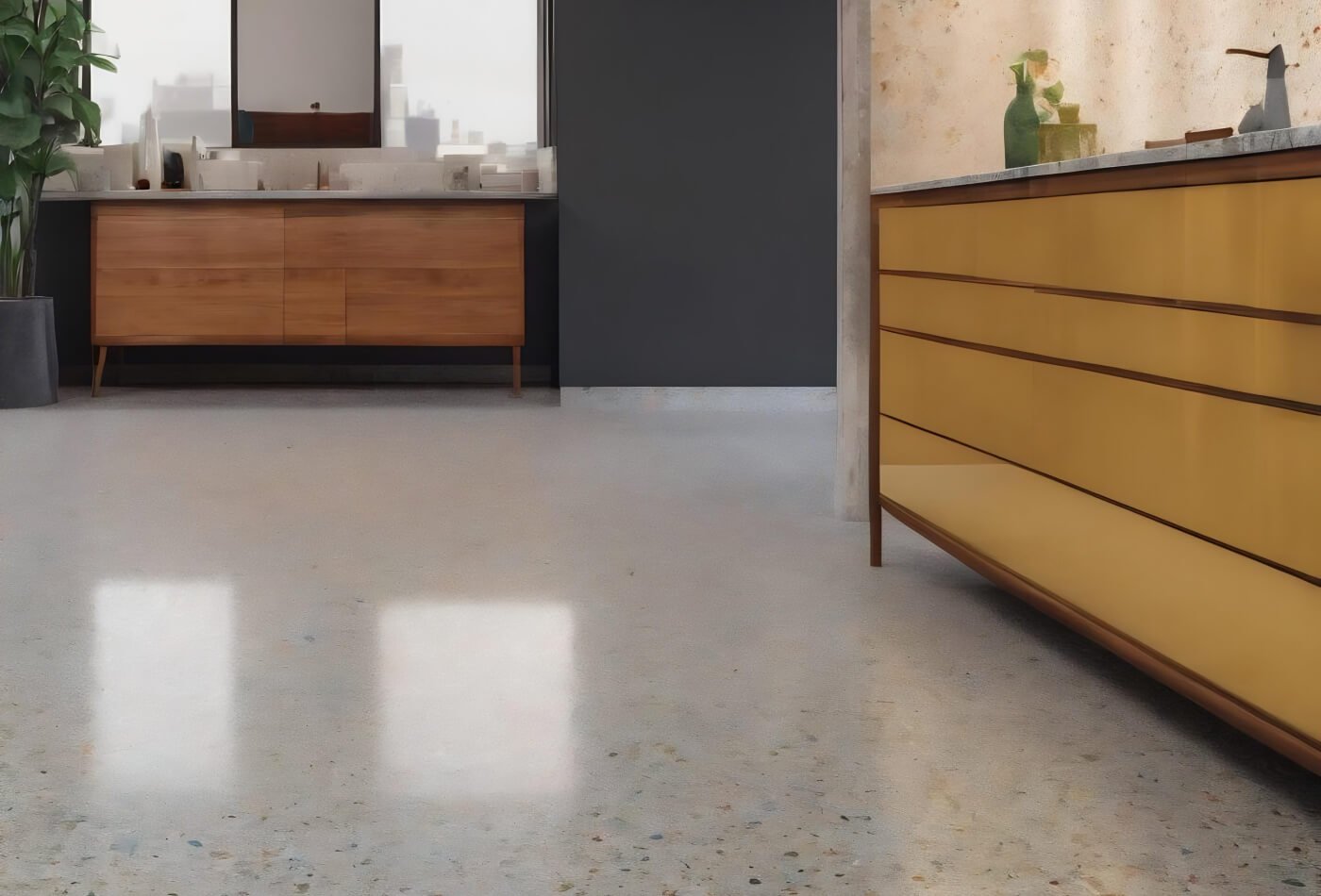
1. Material Composition
Epoxy is a type of resin that is mixed differently, giving it a thicker, more rigid feel. This composition makes epoxy preferred for use in industrial areas, whereas resin is ideal for use in residential areas such as kitchens.
2. Cure Time
Resin typically cures faster than epoxy, which can take several days to fully harden. This faster curing time is perfect for home renovations that need to be wrapped up quickly.
3. Flexibility
Quartz floors with resin finish are a tad more flexible, which means they are less likely to crack. This brings flexibility for resin to take pressure in the areas that are most visited, and it is equally comfortable when a shift of the floor occurs.
4. Appearance
Resin tends to have a shinier and smoother surface, and epoxy has a more rough or sand-like finish, based on the recipe used. A favourite of today’s high-style kitchen, the high gloss of resin achieves a sleek, modern touch when paired with stone surfaces.
ADANA GREY QUARTZ
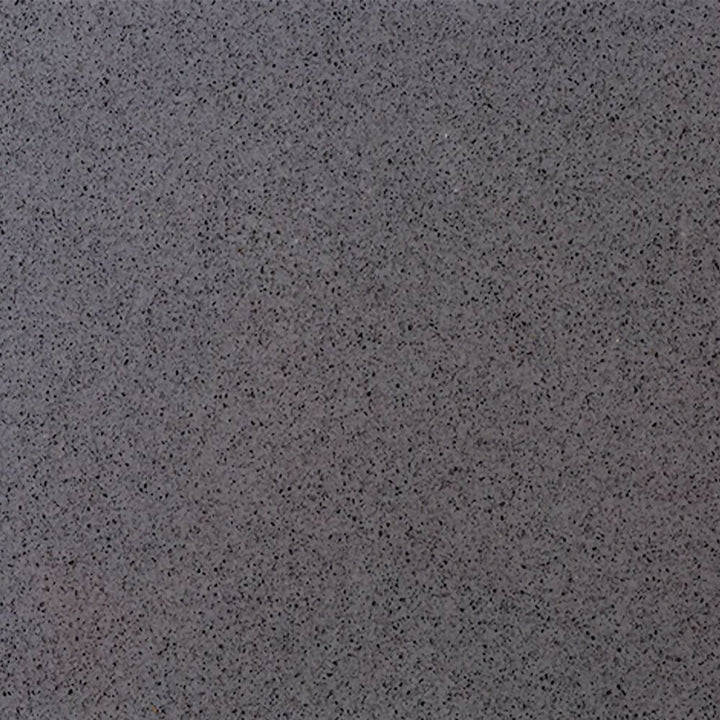
£336.34
You need to elevate your space with Antarctic White Granite, a striking granite slab with a polished finish. Thickness is available in 30mm. This grey granite helps to combine elegance with durability, which helps to make it a very excellent… read more
Step-by-Step Process to Install Quartz Resin Flooring
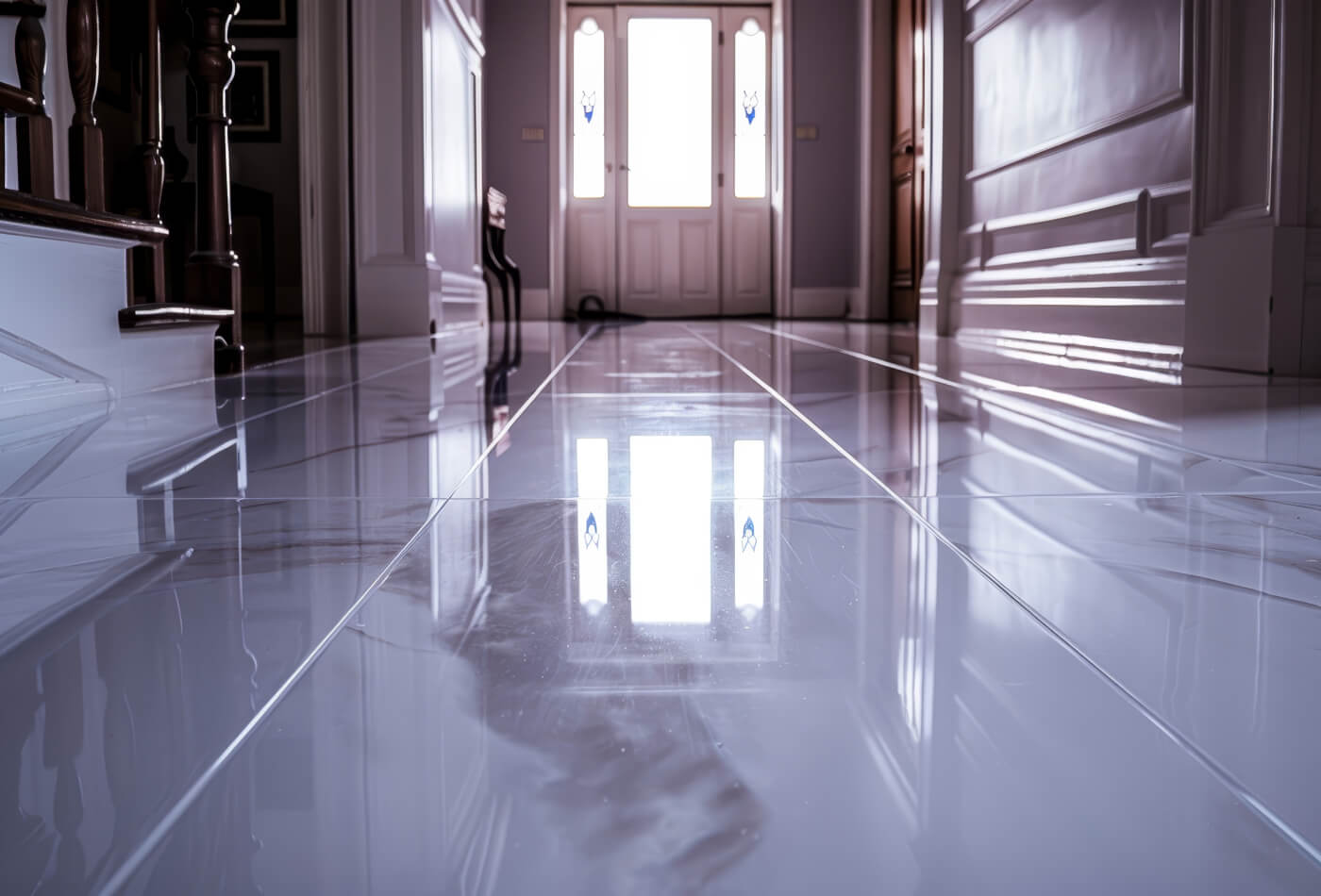
Step 1: Prep the Floor
Preparedness of the current floor sweeping, preparation of the level floor, and also sealing of cracks, if any. This is very important in order to get a flat surface so that the resin would preferably stick well.
Step 2: Apply Primer
A primer layer goes down to help the resin stick well to the work on the surface. This primer lays a solid foundation which ultimately improves the total resilience of your floorings.
Step 3: Mix Resin and Hardener
The resin and hardener are blended carefully so as not to damage the structure and guarantee the right curing. The emphasis placed on the ratio is important to make all the difference in strength and also from an aesthetic point of view.
Step 4: Pour and Spread
The mixture is then tipped onto the floor and struck off with a roller or trowel. Stirring it rapidly is critical because, as soon as it combines, the mix starts to dry.
Step 5: Allow to Cure
The resin requires some amount of setting time, and it may take up to 24 hours or more for it to be fully set. Correct curing helps the flooring to reach maximum hardness and partner to withstand pressures exerted on it.
Step 6: Add Topcoat
For more enhanced character and to have less slipperiness, a surface coat can be added. This extra layer not only brings a better-looking and completing touch but also increases the lifespan of your resin flooring.
Step 7: Final Inspection
To make sure there are no rough surfaces or irregularities, you should scrape them with one of the files used for a clean cut. This final step ensures that your new floor looks perfect and is suitable for normal use.
Comparing Stones with Quartz Resin Flooring:
1. Durability
It shows that both stones and resin are hard-wearing.
However, resin is less likely to crack and chip when compared to natural stones like Granite, Limestone, and Marble.
This makes resin ideal to use in areas that are often used as traffic zones because they are bound to get worn out quickly.
2. Look
Stones such as Marble, Granite, and Slate give a natural and, of course, classic, while resin gives a new and modern look and emphasises stones as an addition.
Another advantage of resin is that it can come in literally all the colours and finishes that there are and can easily fit into any design aesthetic.
3. Maintenance
Compared to most natural stones like Travertine and Sandstone there, this may require sealing, the resin is easier to clean and maintain.
Sometimes, resin doesn’t necessarily require much cleaning or even washing with soap and water; it just requires a swipe with a piece of cloth.
4. Cost
Compared to natural stone like Marble or Granite, Quartz resin floor is cheaper to purchase, and when used to select the floors, it is cheaper than natural stone.
The long lifespan of the resin flooring also means that the total replacement costs are lower than those of other varieties of flooring.
CLASIC TRAVERTINE

£327.84
Clasic Travertine is indeed a type of limestone that forms in hot springs as well as rivers and has been a component of construction for thousands of years, trying to make it a timeless classic. Travertine, as a natural stone,… read more
ITALIAN BLACK SLATE

£289.70
Italian black Slate's dark grey/black look is renowned for being consistent and stunning. Among the many uses for natural Slate are roofing, flooring, kitchen countertops and islands, wall cladding, snooker tables, tombstones, fire hearths, ornamentation, and even tub and shower… read more
Maintenance and Caring Tips for Quartz Resin Flooring:
Explore the maintenance checklist now. Maintaining your Quartz resin flooring has been made easy for you! Here are some simple tips:
Tip 1: Daily Wipe-downs
To maintain shine and avoid buying vigorous detergents, use a damp mop or cloth to clean the floor frequently.
It can become a routine activity to prevent the build-up of dirt and grim on the windows.
Tip 2: Avoid Abrasives
Steer clear of abrasive cleaners and instead use only soft wash clothes or mops with microfiber material.
Use this gentle approach so that your floorings will remain as new as they are today for ages to come.
Tip 3: Handle Spills Quickly
Although the resin is waterproof, any spills need to be wiped off immediately in order to avoid build-up.
This is especially because the frequent check for spills will lessen the regular work to be done.
Tip 4: Use Mild Cleaners
When possible, use mild liquid cleansers that do not cause harm to the floor’s surface and are free of acid reactions.
Budget chemicals can dry out or cause the surface to become dull over time, so it’s ideal to use suitable ones for resin.
Tip 5: Protect High-traffic Areas
Don’t walk with shoes that have spikes or rub their bottoms against the resin kitchen flooring directly since you can use rugs or mats, especially in areas with excessive foot traffic.
All these extra precautions can go a long way to ensuring that your beautiful floor lasts for longer than it would have had you not placed them into practice.
Summary:
Quartz resin flooring can be said to be the best home flooring option because of its elegance and durability. The smooth surface of the product not only makes it blend effortlessly into your interior but also has a low porosity that makes it easy to clean. Compared to natural stones, resin flooring is less prone to chipping and cracking, making it ideal for busy spaces. With proper care, such as regular wipe-downs and gentle cleaning products, your quartz resin flooring can maintain its beauty for years. Work-tops is always here to help you with your flooring needs! Contact us now +44 0330 113 5868 or mail to info@work-tops.com!
P.s. The readers, for your kind information, that none of the content available on any of the Work-tops pages should be taken as legal advice only, and Work-tops will not be held accountable for using the information presented in or linked from these web pages.

